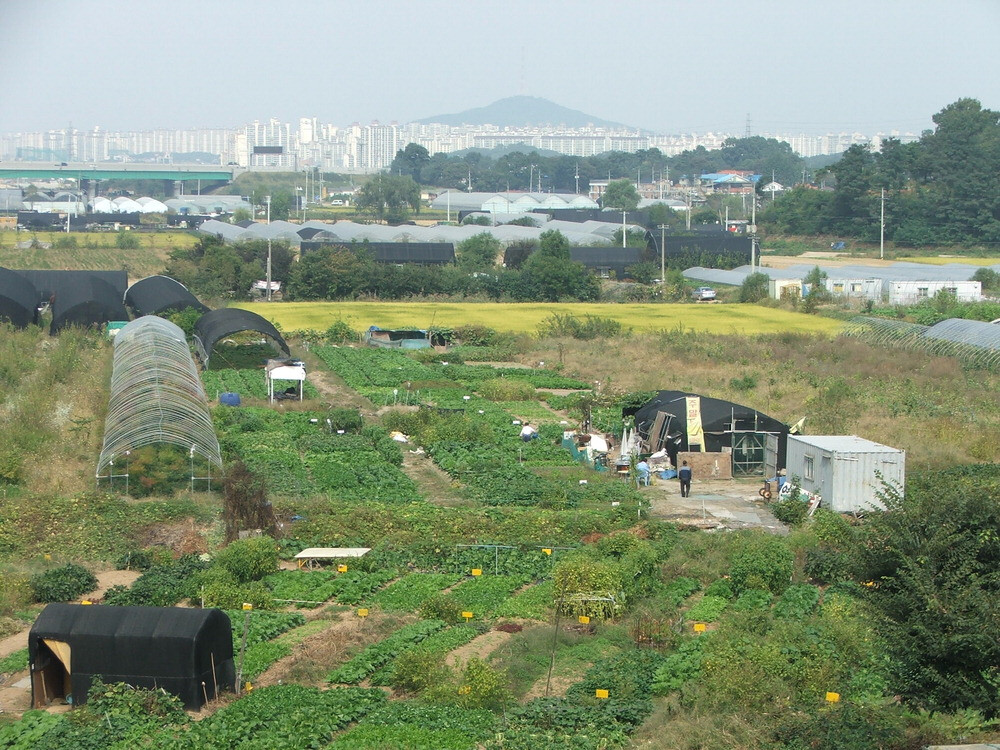
Goyang, South Korea - The South Korean government's recent announcement to develop a new residential area in Goyang's Daegok station area, by lifting greenbelt restrictions, has been met with lukewarm responses from local residents. While the city has long sought to shed its image as a "bedroom community" and become a self-sufficient city, many residents believe that attracting industries and businesses should be the priority rather than additional housing.
The government and the city of Goyang have plans to develop the Daegok station area into a knowledge-based complex, leveraging its strategic location as a "penta-station" served by five railway lines. However, specific details regarding the timeline and the types of businesses that will be attracted to the area remain unclear. Critics argue that this housing-first approach will only deepen Goyang's dependence on Seoul.
Concerns over Oversupply
The Ministry of Land, Infrastructure and Transport announced plans to supply approximately 9,400 new housing units on a 1.99 million square meter plot of land in the Daegok station area. While this is smaller than the 211-million square meter Seocho-gu Seripo district in Seoul, which was also selected as a new residential site, market experts have expressed concerns about oversupply.
The Korea Land and Housing Corporation (LH) has supplied or is planning to supply over 100,000 new housing units in Goyang City over the past decade. With projects like Wonheung, Samsong, and Hyangdong already completed and large-scale developments like Changneung and Janghang underway, the new supply in Daegok is adding to the concerns.
The proposed redevelopment of Ilsan New Town, which could add up to 9,000 new housing units, is also expected to be negatively impacted. Ilsan's lower floor area ratio compared to other first-generation new towns, coupled with the new development in Daegok, could further reduce the profitability of redevelopment projects in Ilsan.
Diverging Views Between the Government and Goyang City
The Daegok station area, with its excellent transportation accessibility, is considered one of the most promising development sites in Goyang. The city has long sought to develop the area into a mixed-use complex combining residential, cultural, and commercial facilities.
However, while the government and LH are keen on maximizing housing supply to address the housing shortage in the Seoul metropolitan area, Goyang City is more focused on developing the area into a self-sufficient city with a strong industrial base.
Although both parties have agreed to minimize the residential development ratio to around 20% and allocate more land for commercial and industrial purposes, experts are skeptical about whether this will be enough to attract businesses to the area.
Criticism of the "Bedroom Community" Policy
Critics argue that the government's approach of simply providing more housing without addressing the underlying issues of regional development is turning Goyang into a "bedroom community" for Seoul.
Im Hong-yeol, a councilor of Goyang City, criticized the government for imposing excessive regulations on industrial development in Goyang while simultaneously using the city as a dumping ground for housing. He argued that the city should have secured more concessions, such as easing regulations on industrial development, in exchange for agreeing to the new housing development.
Experts also pointed out that the government's large-scale housing development projects often fail to consider the actual housing demand of individual cities and regions. Kim Jun-hyung, a professor of real estate at Myongji University, argued that this approach can lead to oversupply and weaken the self-sufficiency of cities.
[Copyright (c) Global Economic Times. All Rights Reserved.]






























